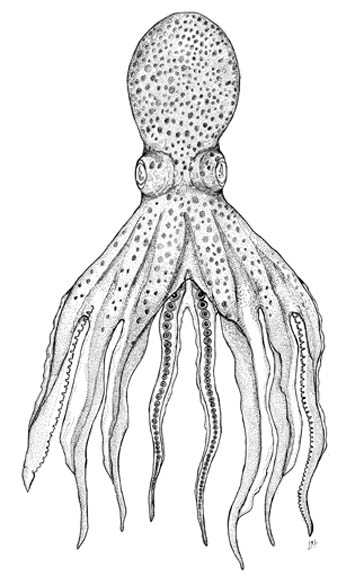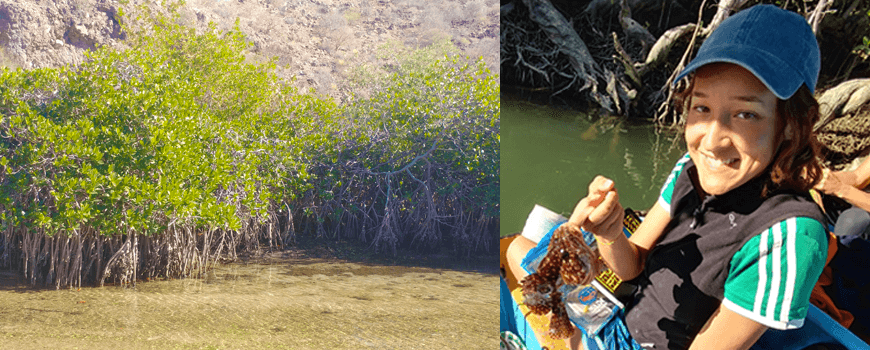
Q: What’s life like as a Scripps student? Describe a typical day in the life of Leticia.
LC: I really love my work and the view from my office window! I usually come to Scripps in the morning and begin work. When I am a little bit stressed, I like to go for a walk on the beach, go kayaking or surfing (when the water is above 65°F of course). I love sports, art, cooking, and music. I cook almost every night, and I’m always trying to paint or play some new music. In the past, I worked as a scientific illustrator of new octopus species in the Southwest Atlantic and I am trying to finish my first oil painting of a human.
Q: What’s the most exciting thing about your work in the field?
LC: I love to be in the water, even when it is very shallow, like mangroves. I also love to watch the fish and the birds in their natural environment and feel the fresh air of new places. I enjoy talking with fishermen and learning about their natural world. It is very nice to communicate your research with people from other fields and I think it is really important to share different world views, especially when we came from different cultures and education backgrounds. I just did some field work in the Baja Peninsula of California, and it is definitely the most enigmatic and precious place I've ever been!
Q: Are there any role models or mentors who have helped you along the way?
LC: Despite being from another field, I really admire astronomer Carl Sagan, mainly because of his skepticism and his ability to communicate science to the general public. I admire my previous advisor in Brazil, Manuel Haimovici, because he is an awesome human being and also very dedicated to collecting long time series under all circumstances (lack of projects, broken cars, etc.). I admire my current advisor, Octavio Aburto-Oropeza, because he’s always thinking outside of the box and thinks about how science can improve the overall quality of life for fishermen and coastal communities in Mexico. And finally, I admire my parents who have always supported my crazy dreams even when they did not understand exactly what I was doing with fish ear bones (otoliths).
Q: What are some of the challenges you face as a student?
LC: The most difficult thing for me is finding the balance between being (and feeling!) productive and relaxed. Sometimes, it’s difficult to stay motivated with the pace of research while our wonderful natural world is being destroyed. I think that the most difficult (but important) thing for students to achieve is to find the correct ways to convey the value of one's research outside of academia such that it can change our reality for the better.
Q: What are your future plans, post-Scripps?
LC: Be happy. I would love to work in a network to build and help enforce marine protected areas (MPAs), areas of the oceans that restrict fisheries and other anthropogenic activities. I am passionate about working on MPAs because they enable the recovery of marine ecosystems and fish populations and frequently spread these benefits to surrounding areas.
This interview has been condensed and edited.
– Brittany Hook






修改评论